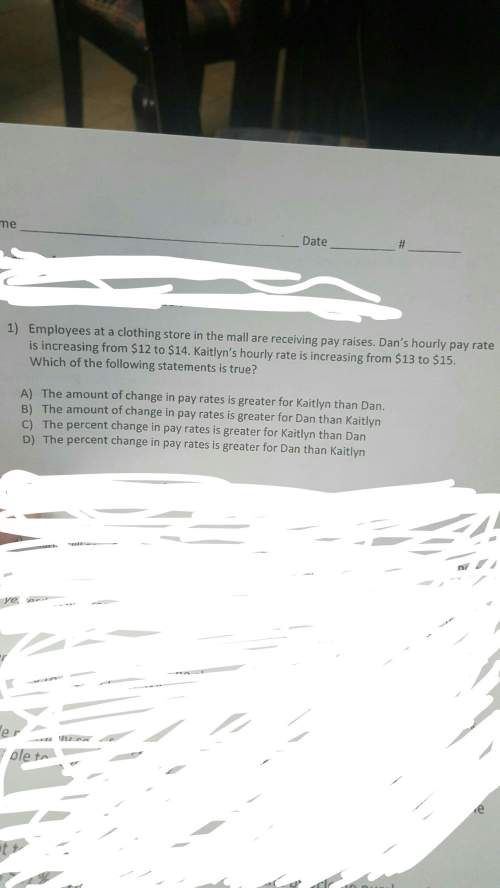
Mathematics, 05.07.2019 18:20 noriega16
Suppose x and y are random variables with joint density function. f(x, y) = 0.1e−(0.5x + 0.2y) if x ≥ 0, y ≥ 0 0 otherwise (a) is f a joint density function? yes no (b) find p(y ≥ 8). (round your answer to four decimal places.) find p(x ≤ 5, y ≤ 8). (round your answer to four decimal places.) (c) find the expected value of x. find the expected value of y.

Answers: 1


Another question on Mathematics

Mathematics, 21.06.2019 18:00
State if the two triangles are congruent. if they are, state how you know?
Answers: 1

Mathematics, 21.06.2019 19:00
Solve the problem. a student earned grades of c, a, b, and a in four different courses. those courses had these corresponding numbers of credit hours: 4, 5, 1, and 5. the grading system assigns quality points to letter grades as follows: a = 4, b = 3, c = 2, d = 1, and f = 0. compute the grade point average (gpa) and round the result to two decimal places. 3.40 3.50 8.75 2.18
Answers: 1


Mathematics, 22.06.2019 01:00
If johnny ate 5 cans of sugar, but in the kitchen they only had 3. what did johnny eat? (he found a secret stash btw.)
Answers: 2
You know the right answer?
Suppose x and y are random variables with joint density function. f(x, y) = 0.1e−(0.5x + 0.2y) if x...
Questions





History, 21.01.2021 23:50


English, 21.01.2021 23:50


Chemistry, 21.01.2021 23:50


Mathematics, 21.01.2021 23:50


German, 21.01.2021 23:50



Mathematics, 21.01.2021 23:50

English, 21.01.2021 23:50


Mathematics, 21.01.2021 23:50

Mathematics, 21.01.2021 23:50

 is a joint density function if its integral over the given support is 1:
is a joint density function if its integral over the given support is 1:

 :
:



 , so we just integrate:
, so we just integrate:![E[Y]=\displaystyle\int_{-\infty}^\infty y\,f_Y(y)\,\mathrm dy=\frac15\int_0^\infty ye^{-y/5}\,\mathrm dy=\boxed5](/tpl/images/0054/9757/d232b.png)



